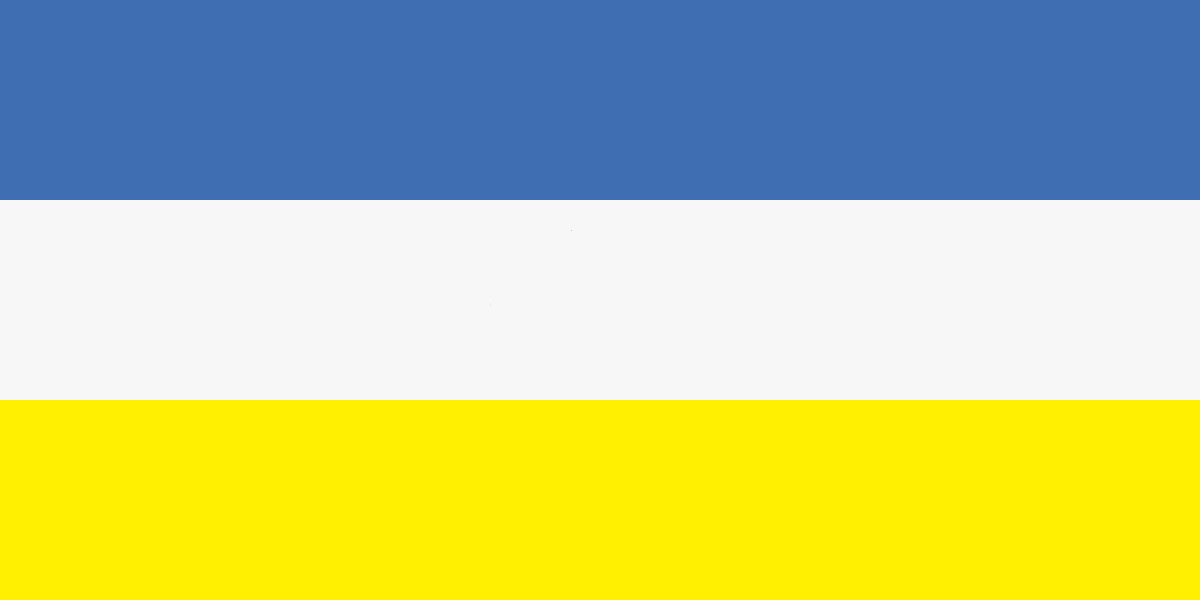Chapter Five: Officialities
Article 37: Flag
a) The flag of Hazaristan is a combination of three colors, yellow, white, and blue, in order from bottom to top.
b) Yellow is the root and descent of the Hazara and from the color family of the Hazaristan mountains.
c) White is purity and truth. It is in harmony with the winter of Hazaristan. Besides yellow and blue, it is one of the most used colors in the traditional Hazara dress.
d) Blue is a symbol of work, development, and prosperity. It is the talent, ability, desire, and national concurrence of the Hazara.

Article 38: Language
a) The official languages of Hazaristan are Hazaragi and Dari Persian.
b) The High Language Council of Hazaristan is responsible for standardizing Hazaragi.
c) In addition to the Hazaragi and Dari Persian languages, teaching and learning international languages are recommended.
Article 39: National Days
a) The World Hazara Solidarity Day, October 1(2nd of Mizan)
b) The National Hazara Culture Day, May 19 (29th of Jawza)
c) The Ancient National Day of Nawruz, March 21 (1stof Hamal)
d) The Hazaristan National Flag Day, January 23 (5th of Dalw)
e) The Day of the Great Genocide, September 24(3rdof Mizan)
f) The National Day of Commemoration of Historic States in Ancient Hazaristan, including the Kushan Empire of Great and Small Kushans, the Riwsharan, the Bamyan Lions, the Ghorian, and the Arghunian States, equal to the day of the Bamiyan, Hazaristan Buddhas were destroyed, March 11 (21st of Hut)
g) The National Day of the Dead, April 21 (1st of Sawr)
h) The National Day of Right Seeking, Revival of Identity and Fight against Monopolies and Totalitarianism, equal to the day of martyrdom of Abdul Ali Mazari, March 12 (22nd of Hut)
i) The National Day of Enlightenment, equal to the day of organized attacks by chauvinist circles and terrorist groups on the massive civil demonstrations of the Hazara Enlightenment Movement, July 23 (2nd of Asad)